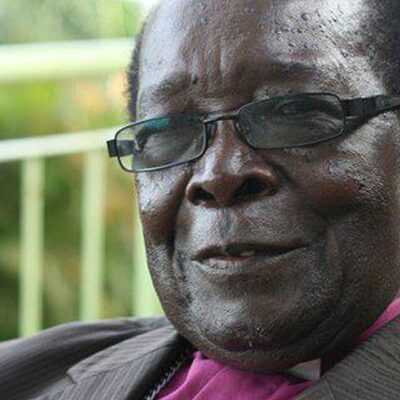In 2000, Church of Uganda Bishop Christopher Senyonjo took in two LGBT youths who had been rejected by their own families, schools and communities because they expressed their sexuality differently. They were worried. They told him, “This is what we are. People do not understand us but that is what we are.”
Since that intervention, Bishop Senyonjo has become an outspoken advocate for LGBT rights in Uganda and globally. Rights Africa Kampala correspondent Joto La Jiwe talked to Bishop Senyonjo, to reflect on his advocacy in a country where hostility to LGBT rights is rampant:

Bishop Christopher Senyonjo
How did you come to accept these youths?
Bishop Senyonjo: It was not easy but I had some studies in the area of human sexuality. I think that is why it is very important for faith leaders to acquire knowledge on a wide range of issues. As I was reading from Hosea 4:6, it said, “My people perish because of lack of knowledge.” These people were suffering. I told them, accept your self, if you know that is what you are. I did not convince them to change who they are. I counseled them to accept who they are.
How did the Church react to this?
Senyonjo: My Church was not happy to hear that. They were happy with my previous counseling because I did a lot of counselling for the Church, but when they heard that I told these people they could be accepted as they are, they said I should condemn these people. That is where the struggle began.
How is the struggle going?
Senyonjo: I needed the truth to be told and when I said it, it made me free. So in spite of problems I have had, like being rejected, not understood, I am glad that the truth was told. I am a free person and I speak what I know and believe. I believe that LGBT people are there, they may be different in human sexuality but they are part of us.
In 2006, you were publicly disowned by the Church of Uganda. Do you still consider yourself part of the Church?
Senyonjo: I have been trying my best to remain in my Church. Some people thought I was going to leave the Anglican Church. I said, of course I am not. It is like when you have been a leader of a certain country, you retire of course, but you do not really abandon the title. With the Bishop, you cannot say you are no longer a Bishop really. You are consecrated for life, so logically, you remain a Bishop. So I said I am not starting any Church. I will share with my fellow Bishops and engage in dialogue.

Bishop Senyonjo celebrates a service in Kampala recently to honour the life of gay rights activists David Kato, killed due to anti-gay hatred in 2011.
Joto La Jiwe, the author of this article, is a Ugandan correspondent for the African Human Rights Media Network and a member of the Uganda Health and Science Press Association. He writes under a pseudonym.
Before his retirement, Bishop Senyonjo received financial support from St. Paul’s Foundation for International Reconciliation and helped raise money for its projects. The St. Paul’s Foundation is the financial sponsor of this news site.
COMMENTS